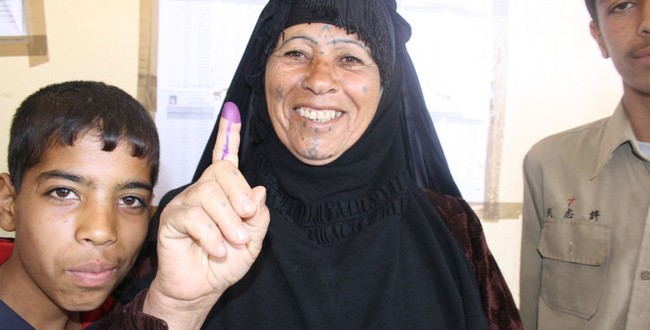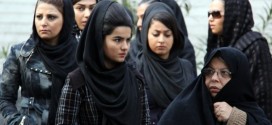Prospective women lawmakers intend to bring women’s issues to the forefront during their campaign for the elections to be held later this month, as a genuine fear of women’s rights being completely eroded away in Iraq hangs in the air. A constitutional requirement in Iraq states one-fourth of MPs must be women; however, only one of the 31 cabinet positions is held by a woman. Iraq lags behind on key women’s rights indicators like female literacy and employment.
Other key issues ahead of the elections on April 30 are discrimination against women at the workplace, violence against women and poor female school attendance. Inam Abdul Majed, television news presenter and election hopeful running in Baghdad, says on the issues, “I did not expect that we will fight for women’s rights in this country. I wanted to fight for better education, better services, better life conditions… But we are in this big trouble now, and it is a primary problem to be solved.”
Iraq was once considered the most progressive Middle East country for women; however, during Saddam Hussein reign, all such progression was rendered useless, and the bloodshed following his ouster only led to further restrictions in the country. According to a UN fact sheet released in May 2013, more than 25% women over the age 12 are illiterate, and for every 100 boys, there are only 85 girls attending secondary school.
However, one of the most troubling statistics is that only 14% Iraqi women are employed or actively seek employment. According to Iraq representative for UN Women Frances Guy, “it’s a serious issue, because it affects women’s financial independence and, without financial independence, women have very few choices in their lives”. Most experts blame the near-daily violence in the country for the current situation, amongst other factors like workplace discrimination, domestic abuse and a flawed education system. UN Women notes that to change the situation, male perception in the country must change.
To potentially make matters worse, a bill which would allow girls to be married when they turn nine, women to have sex with their husbands whenever he demands it and what critics consider other severe restrictions, has been introduced in the parliament. Opponents consider the bill as a gimmick to pander for votes before the elections. They say that if the bill passes, it would be a major step backwards for women’s rights in the country.
 The Arab Democrat The Latest From The Arab World
The Arab Democrat The Latest From The Arab World






